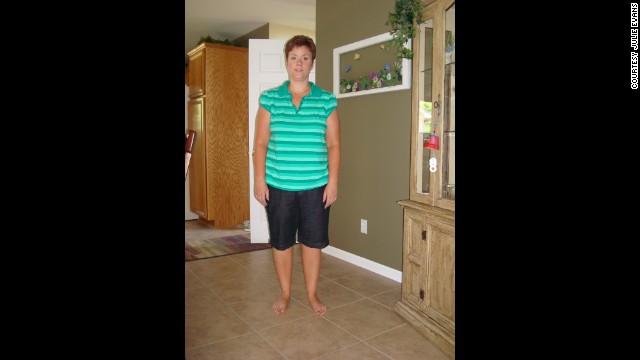Close your eyes.
Imagine your food cravings floating away. Imagine a day of eating only
what's good for you. Imagine hypnosis actually helping you lose
weight—because the news is: It does. Harvard Medical School
psychotherapist Jean Fain gives you ten hypnotic suggestions to try
right now.
By Jean Fain
When I tell people how I make much of my living—as a psychotherapist
hypnotizing people slim—they inevitably ask: Does it work? My answer
usually brightens their eyes with something between excitement and
incredulity.
Most people, including my colleagues at Harvard Medical School,
where I teach hypnosis, don't realize that adding trance to your weight
loss efforts can help you lose more weight and keep it off longer.
Hypnosis predates carb and calorie counting by a few centuries,
but this age-old attention-focusing technique has yet to be embraced
wholeheartedly as an effective weight loss strategy.
Until recently, there has been scant scientific evidence to
support the legitimate claims of respected hypnotherapists, and a glut
of pie-in-the-sky promises from their problem cousins, stage hypnotists,
hasn't helped.
Even after a persuasive mid-nineties reanalysis of 18 hypnotic
studies showed that psychotherapy clients who learned self-hypnosis lost
twice as much weight as those who didn't (and, in one study, kept it
off two years after treatment ended), hypnotherapy has remained a
well-kept weight loss secret.
Unless hypnosis has happily compelled you or someone you know to
buy a new, smaller wardrobe, it may be hard to believe that this
mind-over-body approach could help you get a handle on eating.
Seeing is definitely believing.
So see for yourself. You don't have to be entranced to learn some
of the invaluable lessons that hypnosis has to teach about weight loss.
The ten mini-concepts that follow contain some of the diet-altering
suggestions my weight management clients receive in group and individual
hypnotherapy.
1. The answer lies within. Hypnotherapists believe you have
everything you need to succeed. You don't really need another crash diet
or the latest appetite suppressant. Slimming is about trusting your
innate abilities, as you do when you ride a bicycle. You may not
remember how scary it was the first time you tried to bike, but you
kept practicing until you could ride automatically, without thought or
effort. Losing weight may seem similarly beyond you, but it's just a
matter of finding your balance.
2. Believing is seeing. People tend to achieve what they
think they can achieve. That even applies to hypnosis. Subjects tricked
into believing they could be hypnotized (for example, as the hypnotist
suggested they'd see red, he flipped the switch on a hidden red bulb)
demonstrated increased hypnotic responsiveness. The expectation of being
helped is essential. Let me suggest that you expect your weight loss
plan to work.
3. Accentuate the positive. Negative, or aversive,
suggestions, like "Doughnuts will sicken you," work for a while, but if
you want lasting change, you'll want to think positive. The most popular
positive hypnotic suggestion was devised by doctors Herbert Spiegel and
David Spiegel, a father- son hypnotherapy team: "For my body, too much
food is damaging. I need my body to live. I owe my body respect and
protection." I encourage clients to write their own upbeat mantras. One
50-year-old mother who lost 50-plus pounds repeats daily: "Unnecessary
food is a burden on my body. I'm going to shed what I don't need."
4. If you imagine it, it will come. Like athletes preparing for
competition, visualizing victory readies you for a victorious reality.
Imagining a day of healthy eating helps you envision the necessary
steps to becoming that healthy eater. Too tough to picture? Find an old
photograph of yourself at a comfortable weight and remember what you
were doing differently then; imagine resurrecting those routines. Or
visualize getting advice from a future older, wiser self after she's
reached her desired weight.
5. Send food cravings flying. Hypnotherapists routinely
harness the power of symbolic imagery, inviting subjects to put food
cravings on fluffy white clouds or in hot air balloons and send them
up, up, and away. If McDonald's golden arches have the power to steer
you off your diet, hypnotists understand that a counter symbol can steer
you back. Invite your mind to flip through its Rolodex of images until
one emerges as a symbol for casting out cravings. Heave-ho.
6. Two strategies are better than one. When it comes to
losing weight and keeping it off, a winning combination is hypnosis and
cognitive-behavioral therapy (CBT), which helps revamp
counterproductive thoughts and behaviors. Clients who learn both lose
twice as much weight without falling into the dieter's lose-some,
regain-more trap. You've already tried CBT if you've ever kept a food
diary. Before my clients learn hypnosis, they keep track of everything
that passes their lips for a week or two. Raising awareness, every good
hypnotherapist knows, is a key baby step toward lasting change.
7. Modify, modify, modify. The late hypnosis innovator Milton
Erickson, MD, emphasized the importance of using existing patterns. To
alter one client's lose-regain, lose-regain pattern, Erickson suggested
she first gain weight before losing it—a hard sell nowadays, unless
you're Charlize Theron. Easier to swallow: Modify your highest- calorie
craving. Instead of a pint of ice cream, how about a cup of frozen
yogurt?
8. Like it or not, it's survival of the fattest. No
suggestion is powerful enough to override the survival instinct. Much as
we like to think it's survival of the fittest, we're still programmed,
in case of famine, for survival of the fattest. Case in point: a
personal trainer on a starvation diet who wanted me to suggest away her
gummy bear addiction. I tried to explain that her body believed her
life depended on the chewy candies and wouldn't give them up until she
got enough calories from more nutritious foods. No, she insisted, a
suggestion was all she needed. I wasn't surprised when she dropped out.
9. Practice makes perfect. One Pilates class does not produce
washboard abs, and one hypnosis session cannot shape up your diet. But
silently repeating a positive suggestion 15 to 20 minutes daily can
transform your eating, especially when combined with slow, natural
breaths, the cornerstone of any behavioral-change program.
10. Congrats—it's a relapse. When clients find themselves,
against their healthiest intentions, overindulging, I congratulate
them. Hypnosis views a relapse as an opportunity, not a travesty. If you
can learn from a real or imagined relapse— why it happened, how to
handle it differently—you'll be better prepared for life's inevitable
temptations.
Source: http://www.oprah.com/health/Hypnosis-for-Weight-Loss-Can-Hypnosis-Help-You-Lose-Weight


















.jpg)













